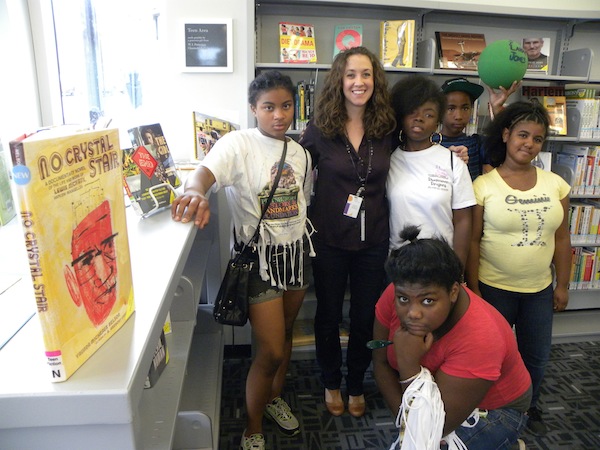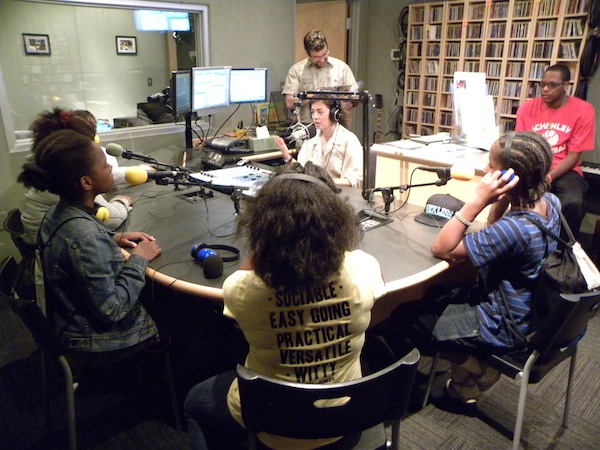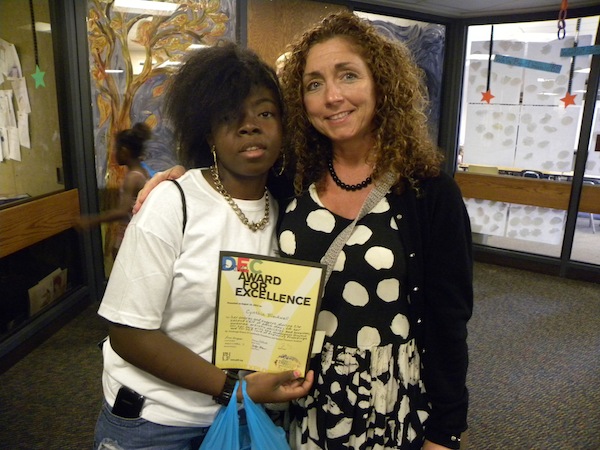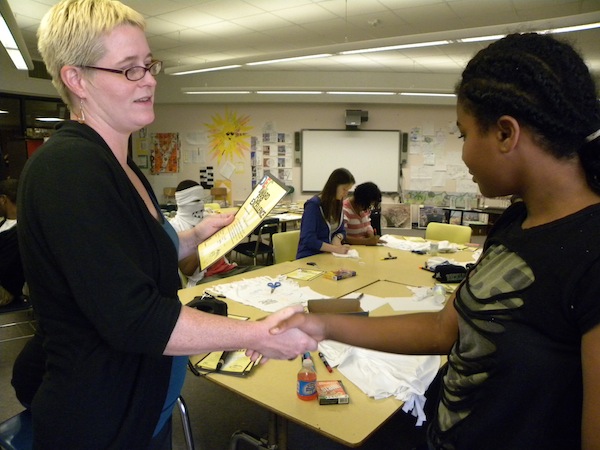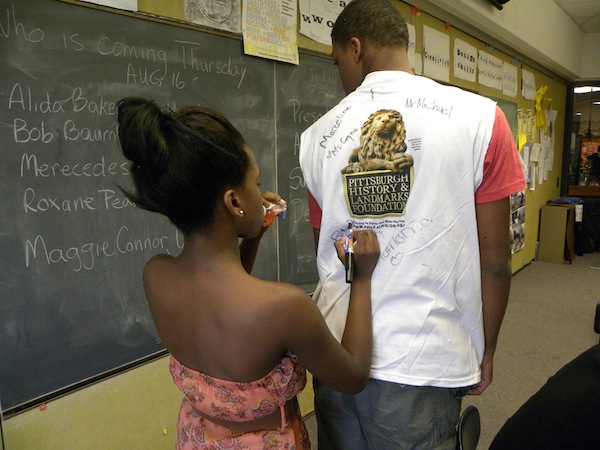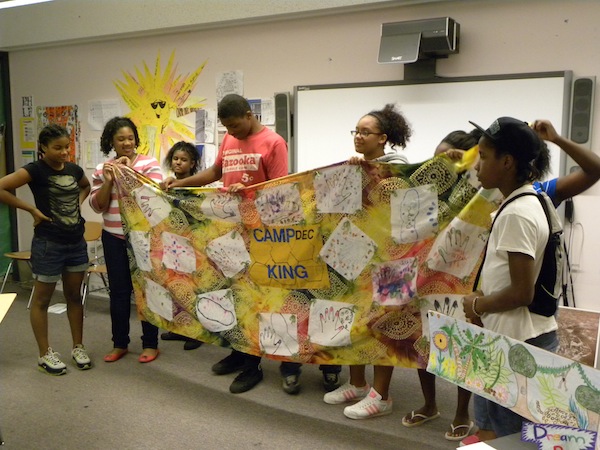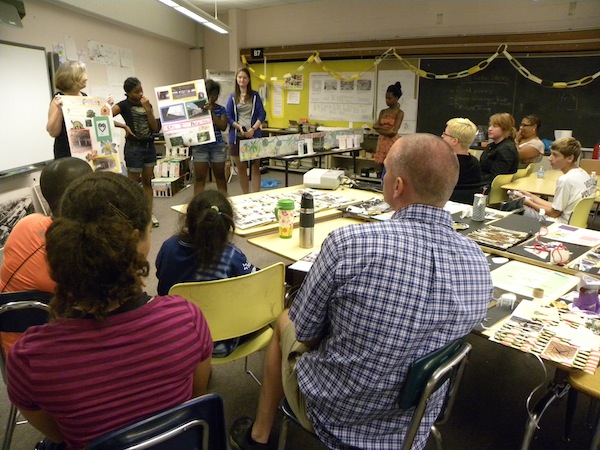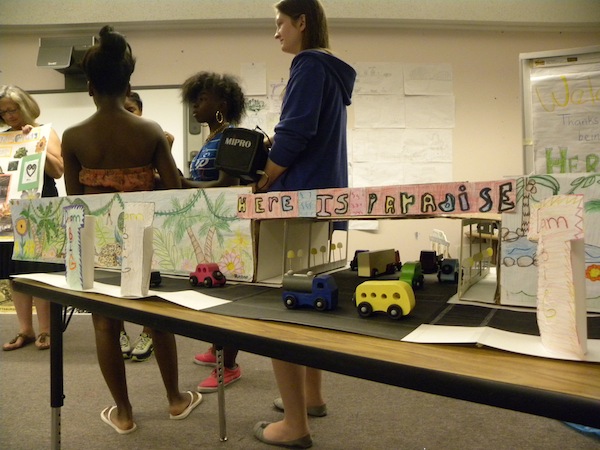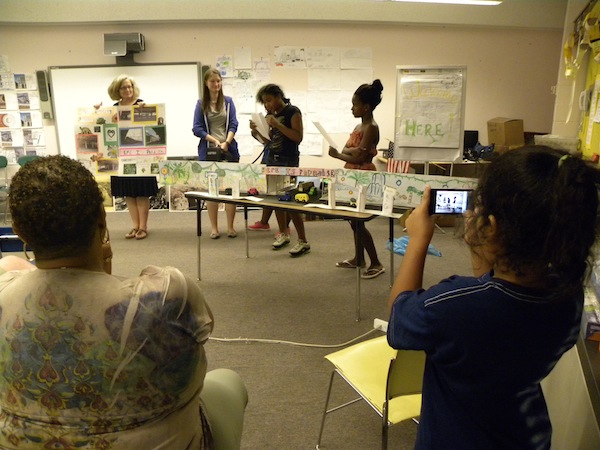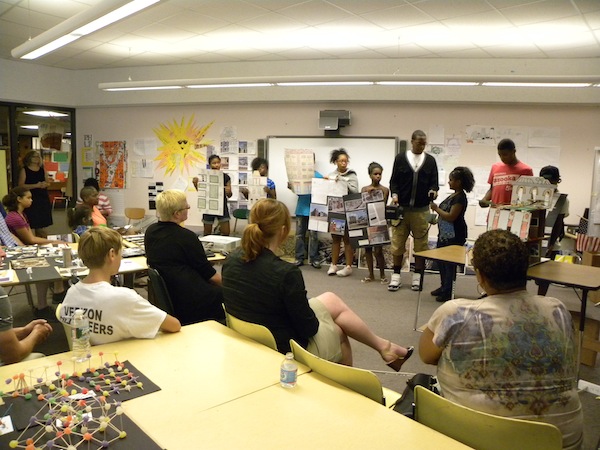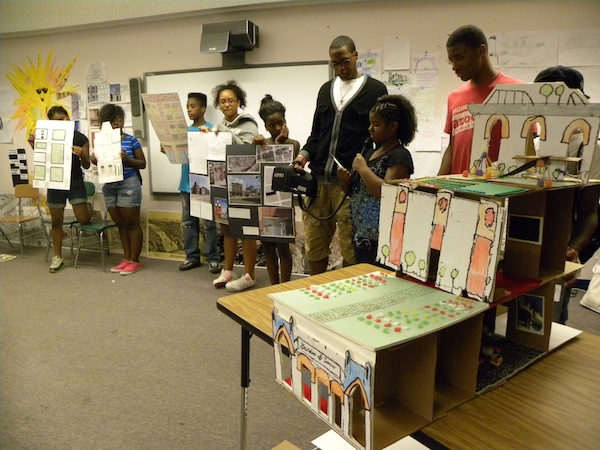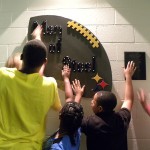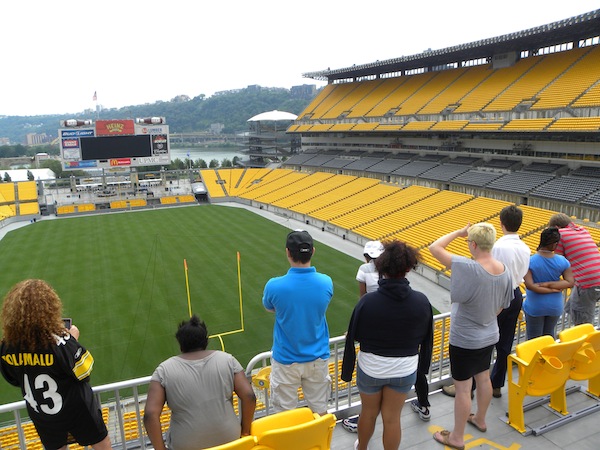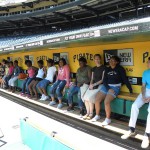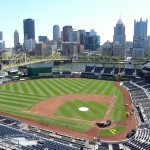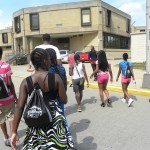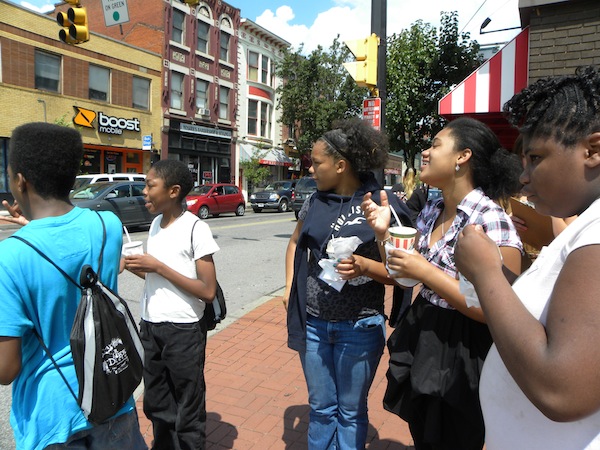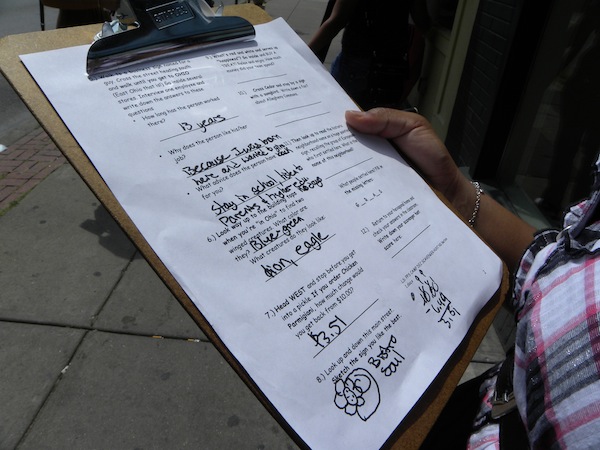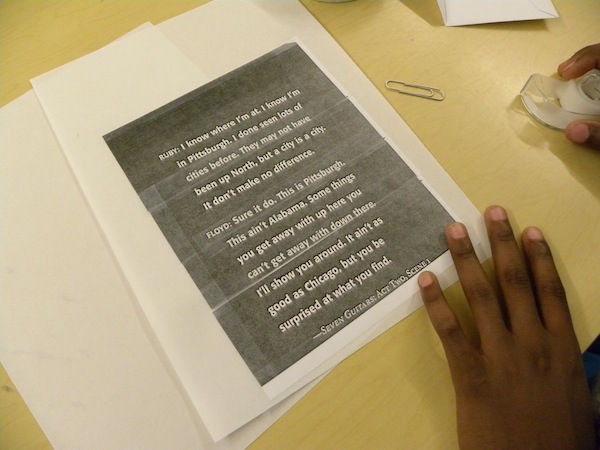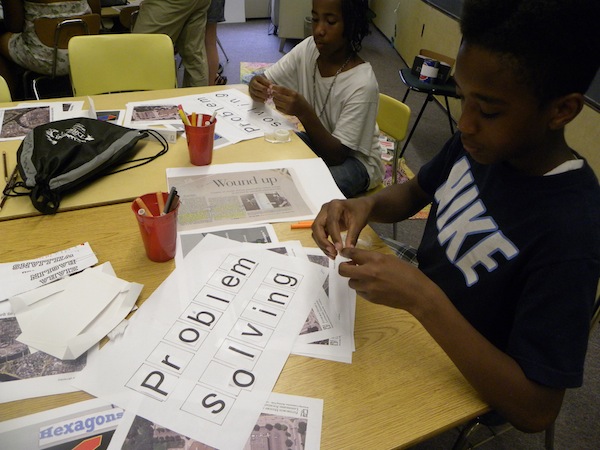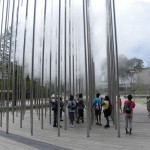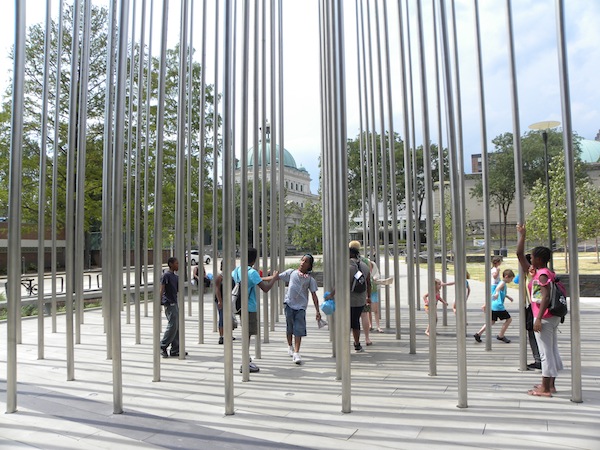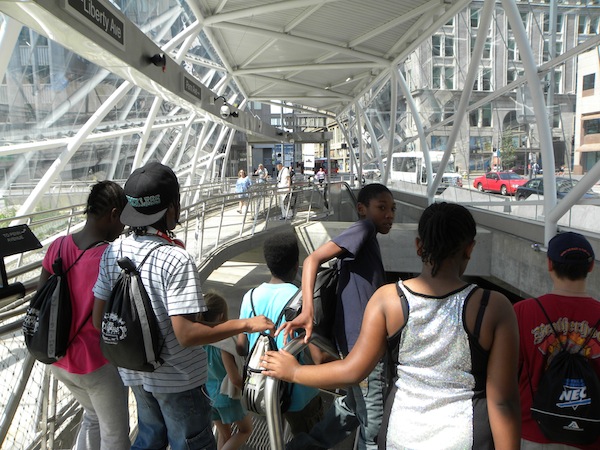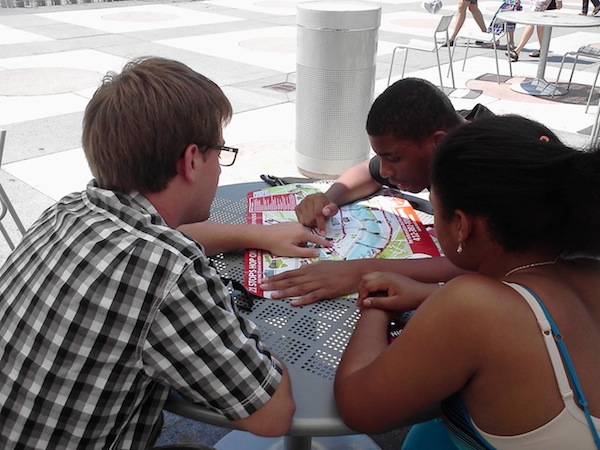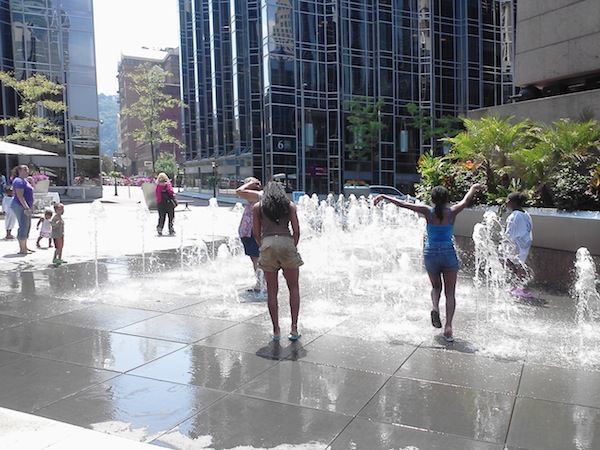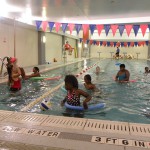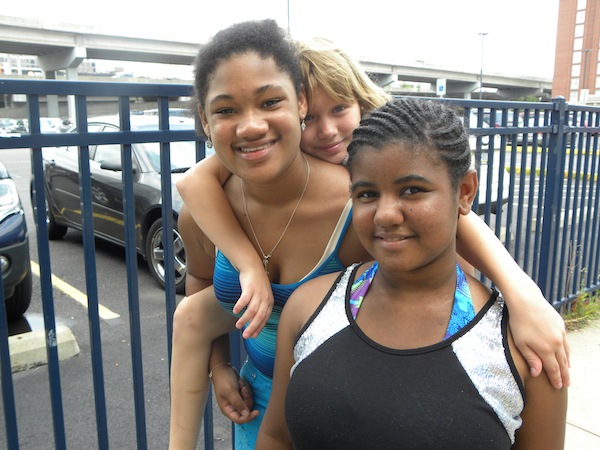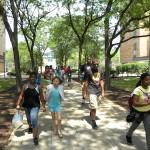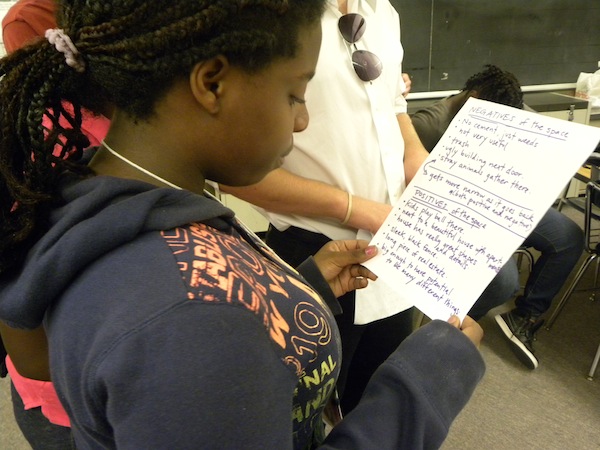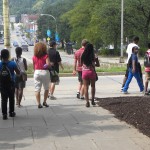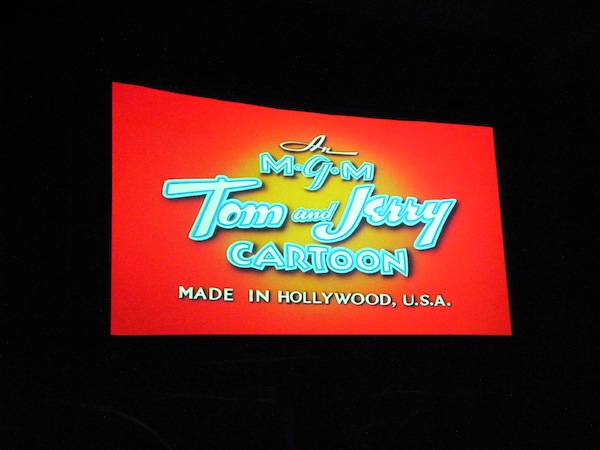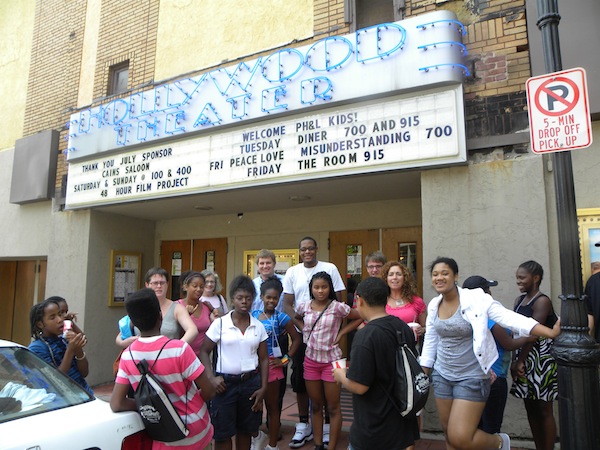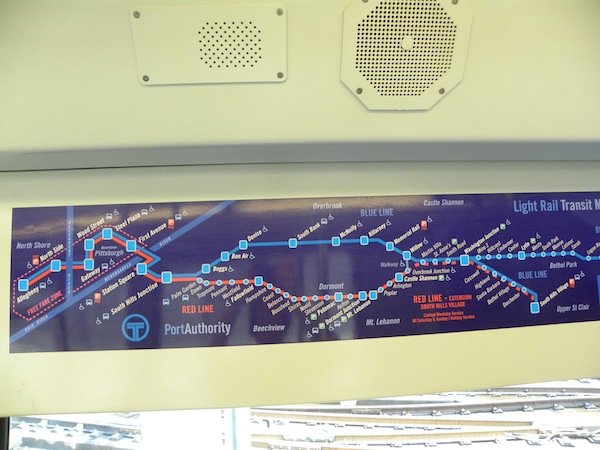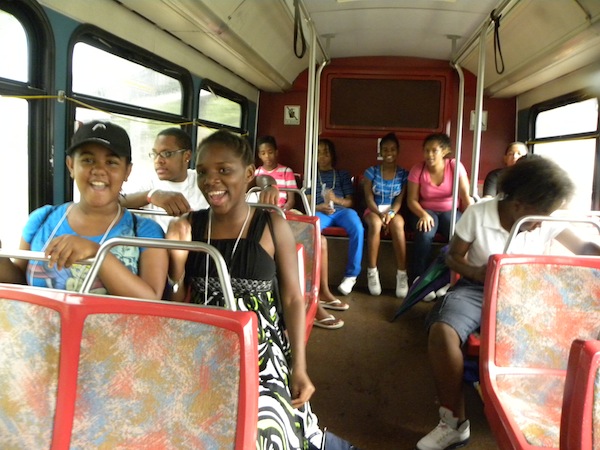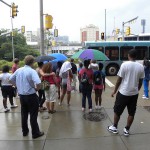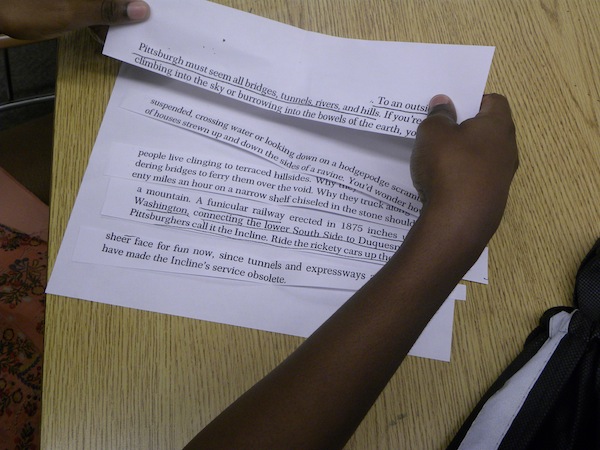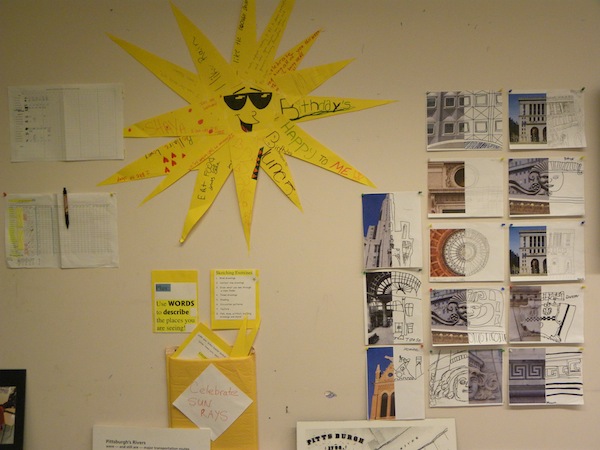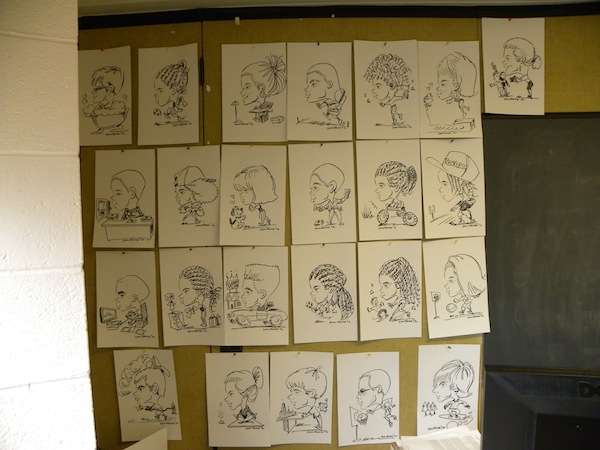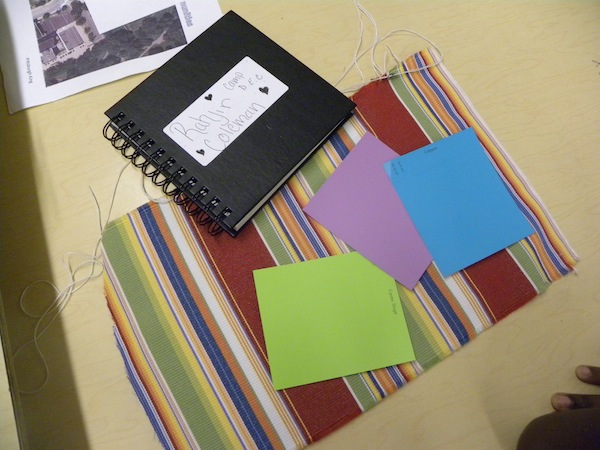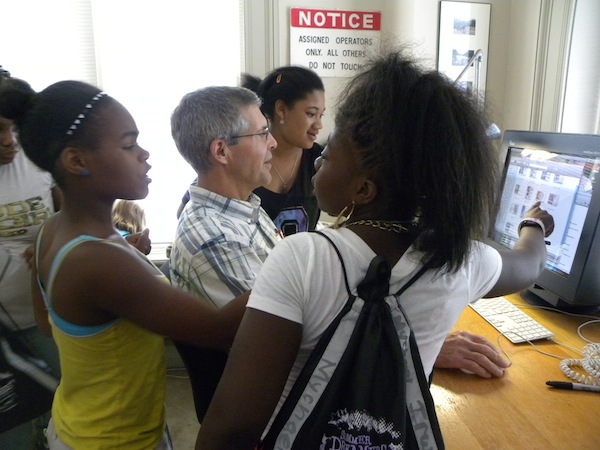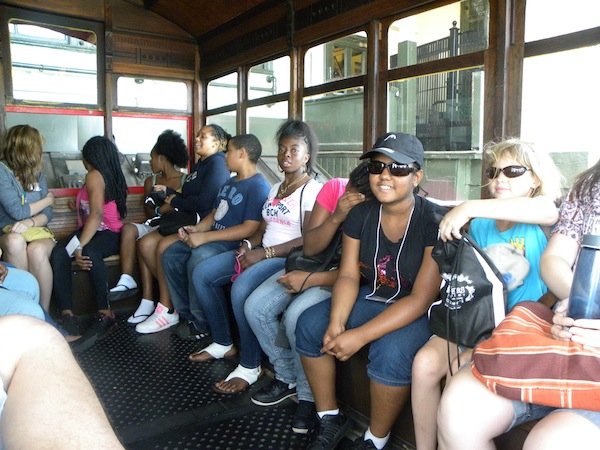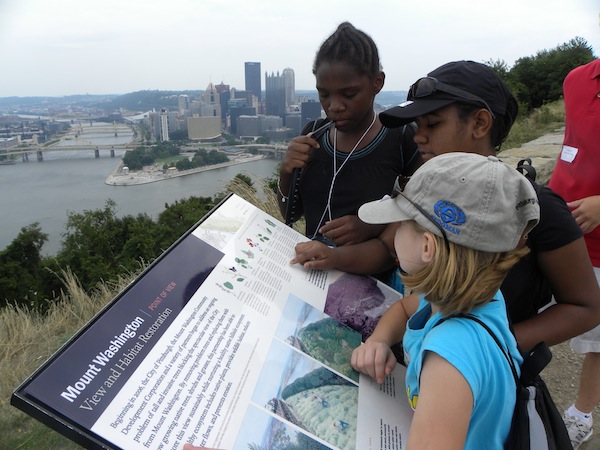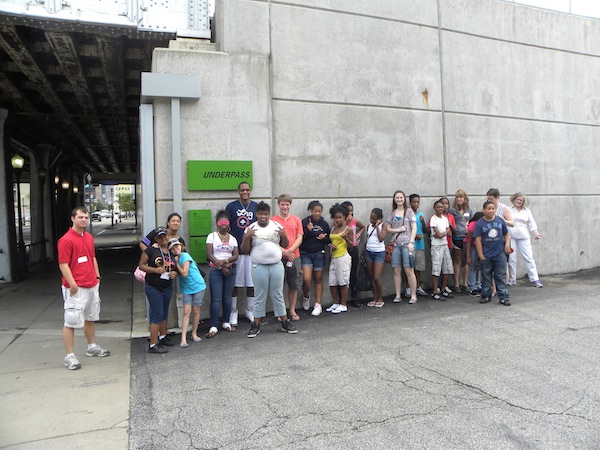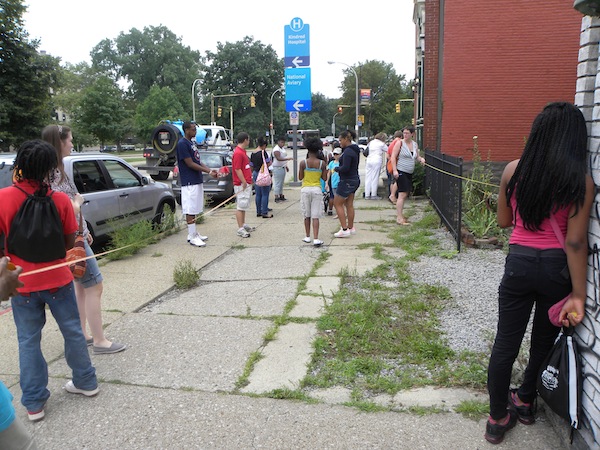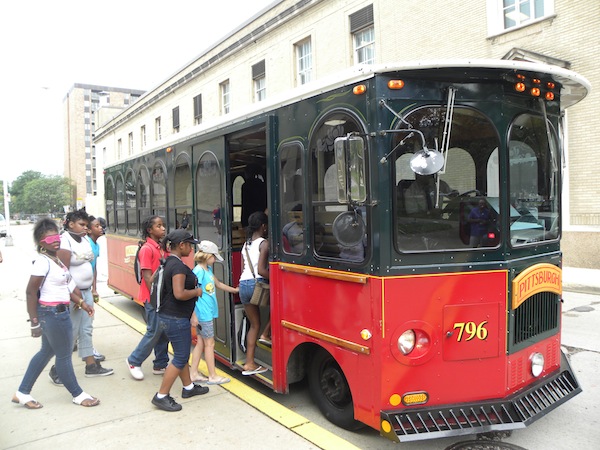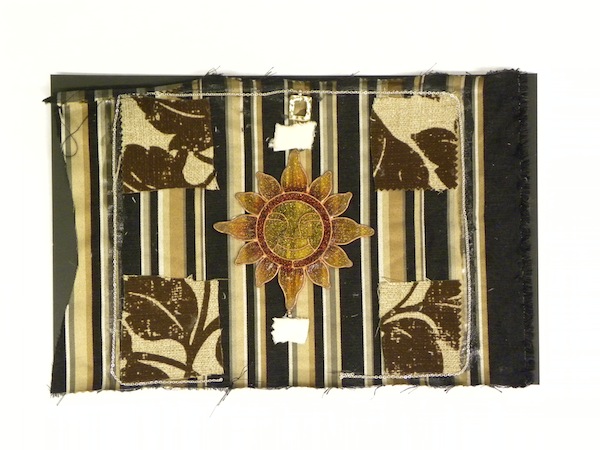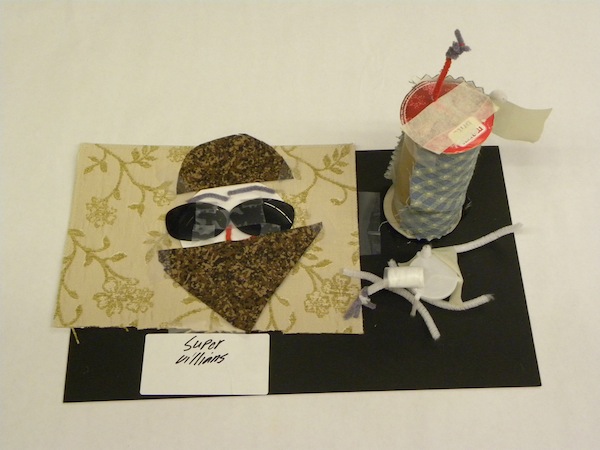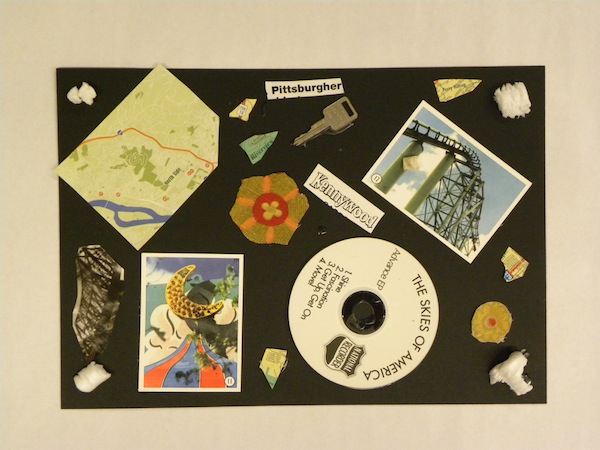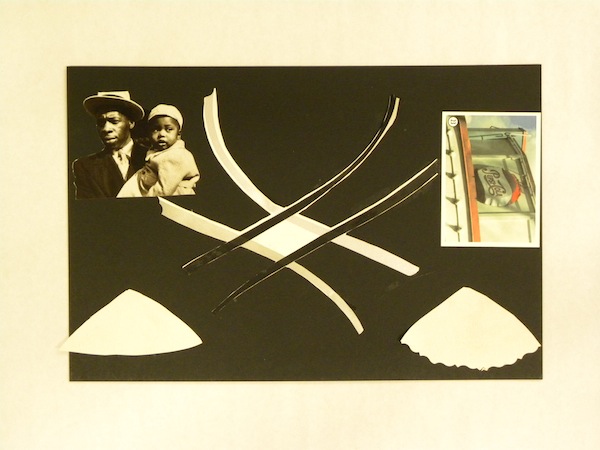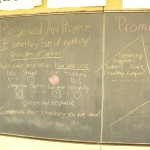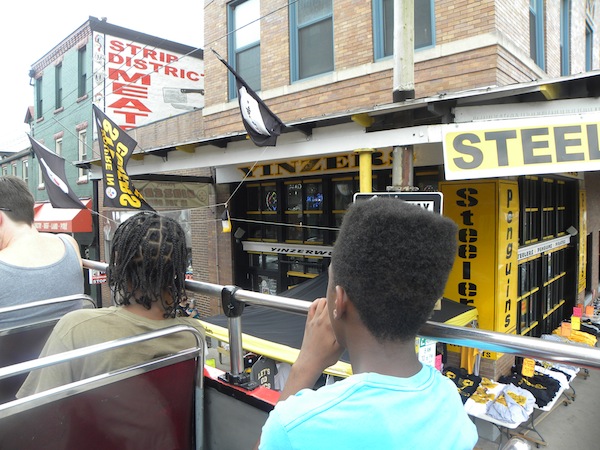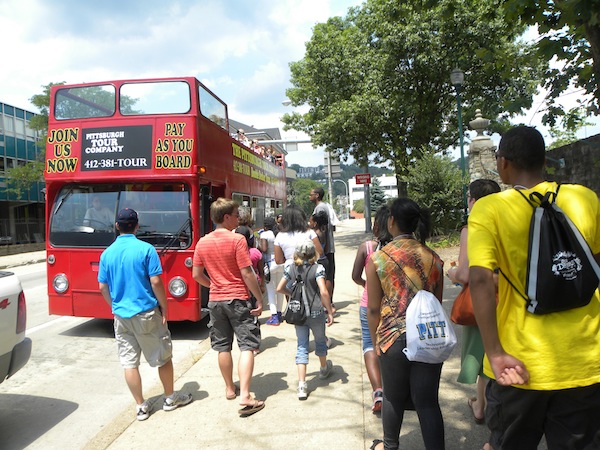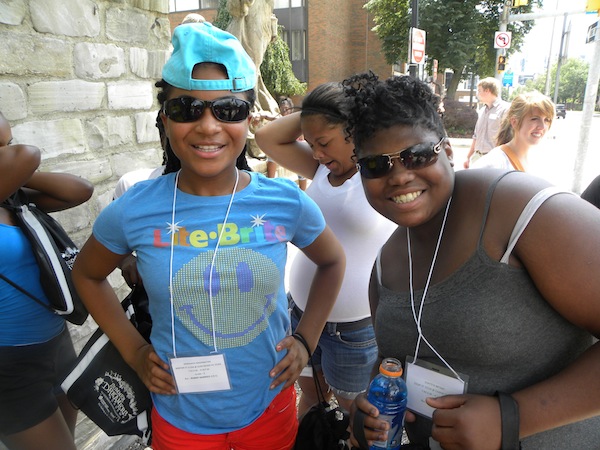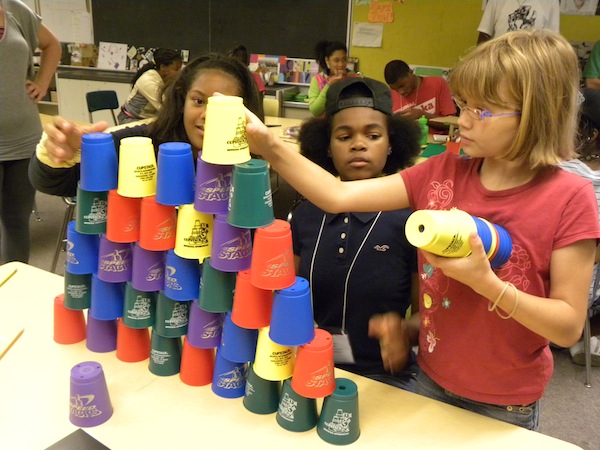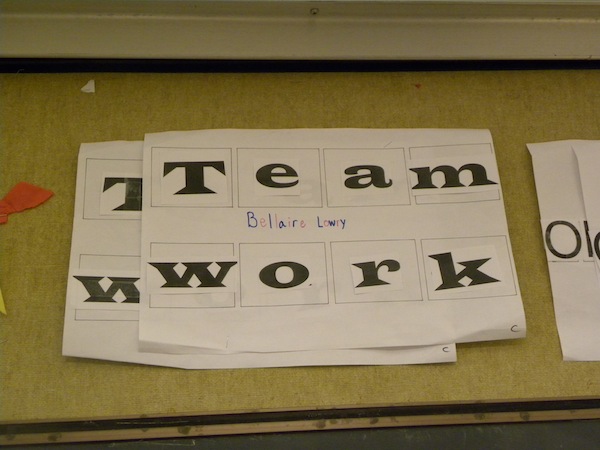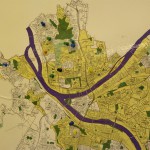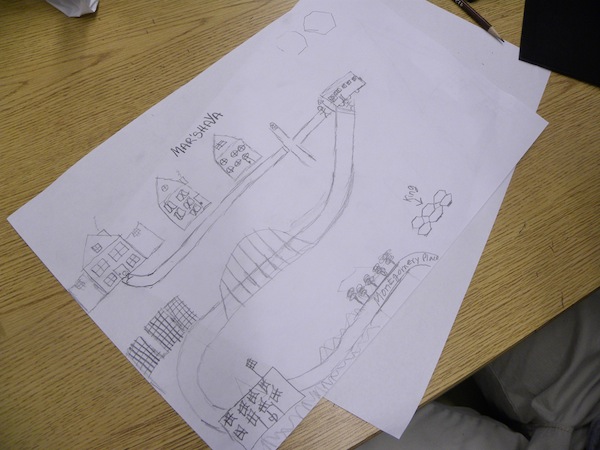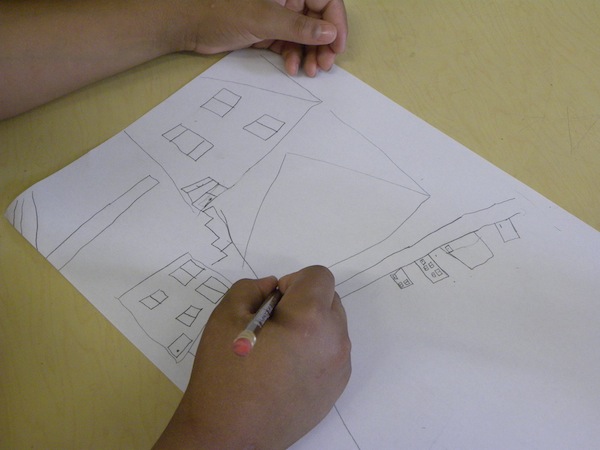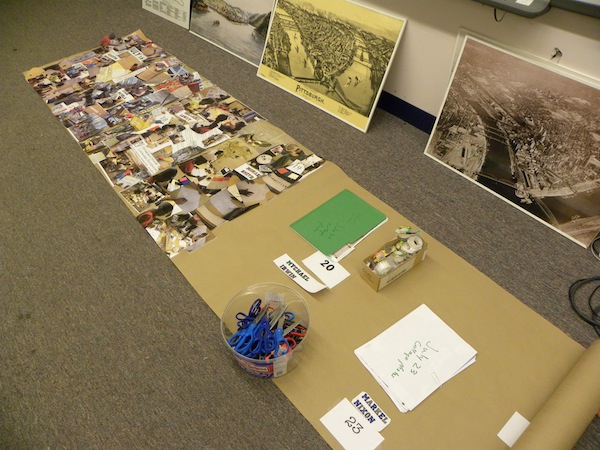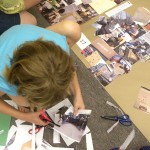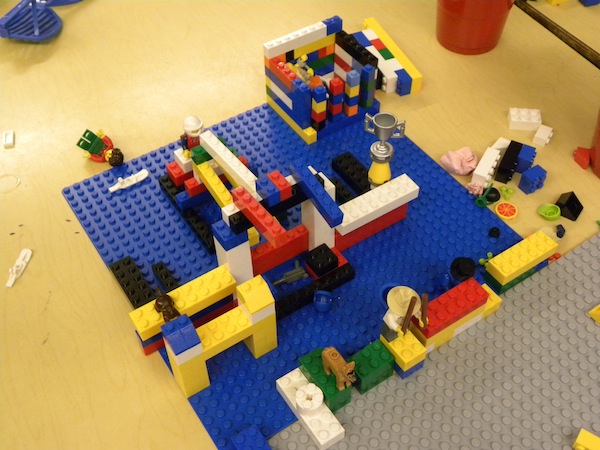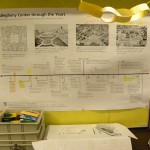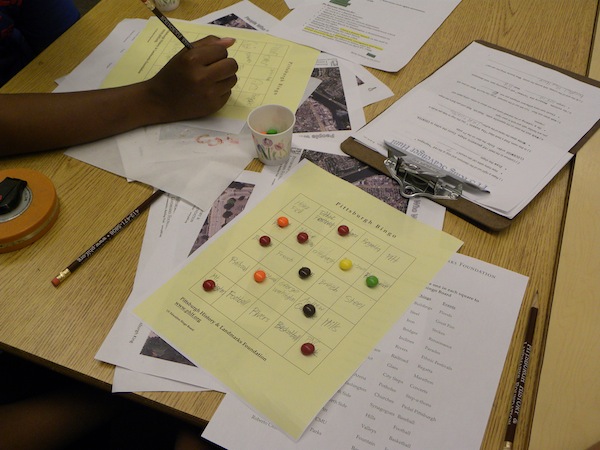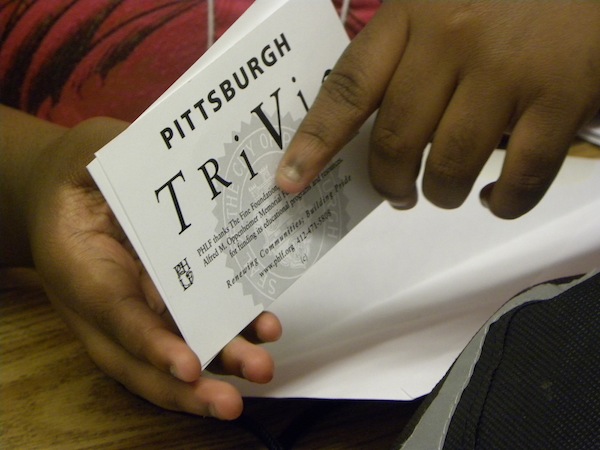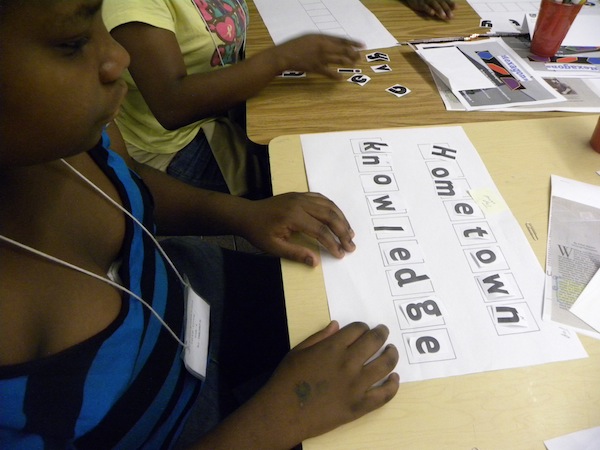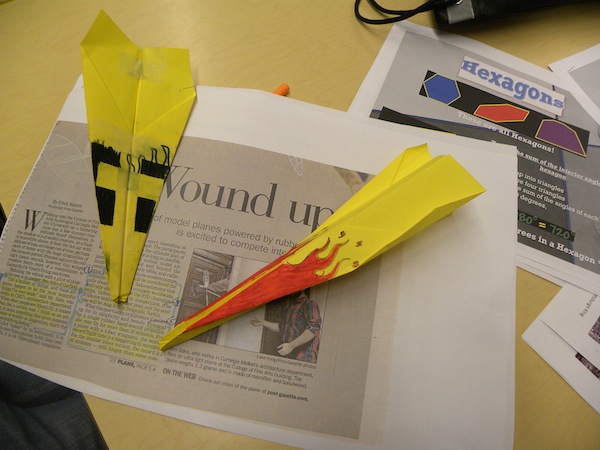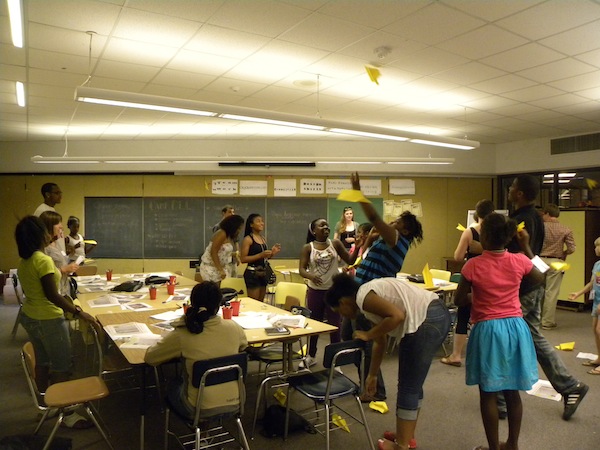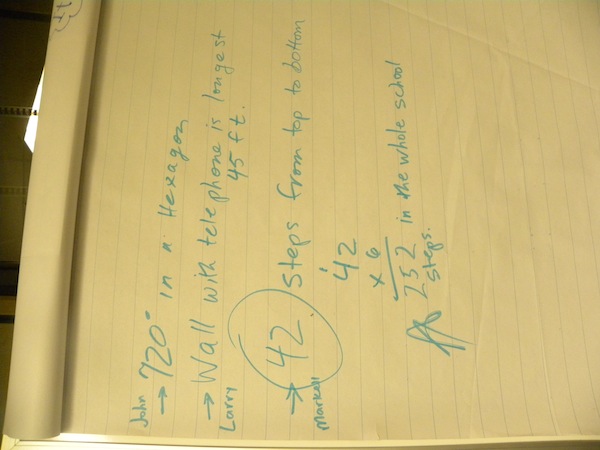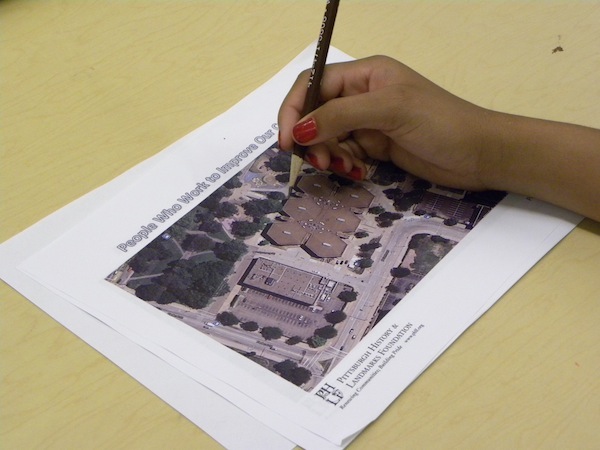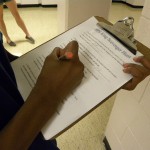
Category Archive: PHLF News
-
Thank You Summer Interns
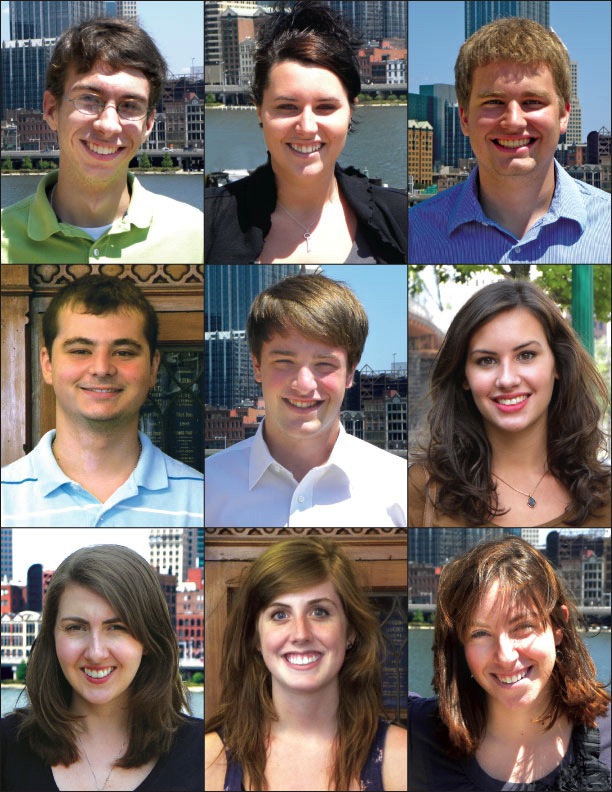 PHLF involved 11 volunteer interns (undergraduate and graduate students) in its educational and historic preservation activities between April and August 2012. Students incorporated their interests in urban planning, historic preservation, cultural heritage preservation, history, art history, and architecture to help advance PHLF’s mission.
PHLF involved 11 volunteer interns (undergraduate and graduate students) in its educational and historic preservation activities between April and August 2012. Students incorporated their interests in urban planning, historic preservation, cultural heritage preservation, history, art history, and architecture to help advance PHLF’s mission.
Interns assisted with the National Register Downtown Districts project, finished scanning the Allegheny County Historic Sites Survey, and developed preliminary inventories of National-Register eligible districts for Lawrenceville, the Strip District, and Woodland Road. They also helped prepare for and implement CampDEC (Design Explore Create), a 25-day summer camp for Pittsburgh Public School students.
We thank the following for volunteering their time and talent to PHLF:
- Hannah Beckman, University of Mary Washington (Historic Preservation)
- Brittany Buzzelli, University of Pittsburgh (Urban Studies)
- Kimberly Colberg, Edinboro University (Art History)
- Matthew Hoffman, Catholic University of America (Architecture)
- Carl Lew, Duquesne University (History)
- Christopher Mannella, Ohio State University (Architecture)
- Reed McLaughlin, St. Vincent College (History)
- Barrett Reiter, University of Pittsburgh (History/Political Science/Preservation)
- Betsy Sweeny, University of Missouri (Art History/Archaeology & Anthropology)
- Kathryn Townsend, University College London (Cultural Heritage Studies)
- Eric Venturella, Robert Morris University (History/Social Sciences)
Intern comments on the value of their experiences with PHLF include the following:
- Hannah Beckman: “Since I am not a Pittsburgh native, I was able to learn a lot about the city through numerous exciting summer camp activities, all highlighting the history and the diverse built environment.”
- Chris Mannella: “My favorite part of my time at PHLF was meeting and growing close to everyone on the staff. From the interns all the way up to the president, I really enjoyed learning from the wealth of knowledge that has accumulated here at this fun, friendly, and productive office. I have grown in both my love of Pittsburgh and my passion for architecture because of it. The passion that everyone brings to their work at PHLF is really inspiring, and it leads to a greater range of outreach in the city than I had imagined.”
- Carl Lew: “Interning for PHLF helped me get in touch with those who allow me to research and create, the things which inspire me most.”
- Reed McLaughlin: “Interning with PHLF was a great experience. By helping with National Register research and CampDEC activities, my experience has not only heightened my appreciation for Pittsburgh but has also helped me see how young students learn to appreciate their hometown as well.”
- Kate Townsend: “My internship with PHLF not only afforded me the opportunity to gain professional experience in the field of historic preservation, but it reignited my passion and commitment to educating others about the City of Pittsburgh’s cultural heritage. PHLF strives to instill the knowledge that the architectural relics of the past have continued vibrancy, importance, and purpose for future generations as an impetus to foster community spirit and neighborhood renewal.”
As a result of their experiences with PHLF, volunteer interns add to their portfolios, gain a deeper appreciation for Pittsburgh’s history and architecture, and develop an awareness of the economic, social, and cultural benefits of historic preservation.
-
CampDEC (Design Explore Create) Makes an Impact
After a 25-day summer camp adventure with PHLF, middle school campers admitted they “learned a lot about Pittsburgh” and “how to draw, create, and design.” They showed off their work during a final presentation on August 16 to community leaders, architects, parents, and friends.
These photos show highlights of the campers’ final two weeks, including field trips to PNC Park and Heinz Field and the completion of three major projects: a 74-page book featuring their writing and artwork and models showing a homeless shelter for a vacant lot on W. North Avenue and an improved pedestrian walkway on Federal Street. Photos also show campers recording their poetry at SLB Radio and donating their book to the Carnegie Library of Pittsburgh, Northside Branch. Well done, Summer Dreamers!
PHLF offered CampDEC (Design Explore Create) for the third consecutive summer as part of the Pittsburgh Public School’s Summer Dreamers Academy. CampDEC 2012 was based at Pittsburgh King on the North Side. Karin Coyne, PPS Activities Specialist who joined PHLF’s staff in teaching said, “CampDEC is an amazingly rich, multi-layered, well-developed, and fun program!”
-
Forever Young: Illustrated Lecture by Holly Brubach
Forever Young: How Endless Possibility as an American Birthright Shapes Our Cities and Our Minds
Thursday, November 29, 2012
6:00 to 7:30 p.m.
Carnegie Museum of Art Theater
4400 Forbes Avenue, OaklandCo-sponsors: PHLF and Heinz Architectural Center, Carnegie Museum of Art
Reservations required
Holly Brubach––a trustee of PHLF, member of Carnegie Museum of Art’s board, author, screenwriter, design consultant, and Distinguished Daughter of Pennsylvania––will present an illustrated lecture with images from Paris, Milan, Venice, and New York.
A reception will follow.“Cities are constantly editing themselves,” she says. “In Europe, the continued survival of old buildings serves as an everyday reminder of history, as people tread the same sidewalks and inhabit the same rooms as generations of others before them. How can we in America incorporate the past into our contemporary urban environments? Having spent years abroad as a resident of other cultures, I’m convinced that preservation can help us transform our attitudes as a society and our lives as individuals.”
Join us for this tour of world-class cities and discussion about the bedrock principles that underlie them. This lecture is part of PHLF’s continuing series, “Architecture and Historic Preservation Abroad” and is co-sponsored by the Heinz Architectural Center, Carnegie Museum of Art.
Fee: $5 PHLF and Carnegie Museums of Pittsburgh members; $10 non-members
Reservations are required by November 26: contact Mary Lu Denny (412-471-5808, ext. 527). The event is limited to 175 people.
-
PHLF Career Awareness Program Wins State Award
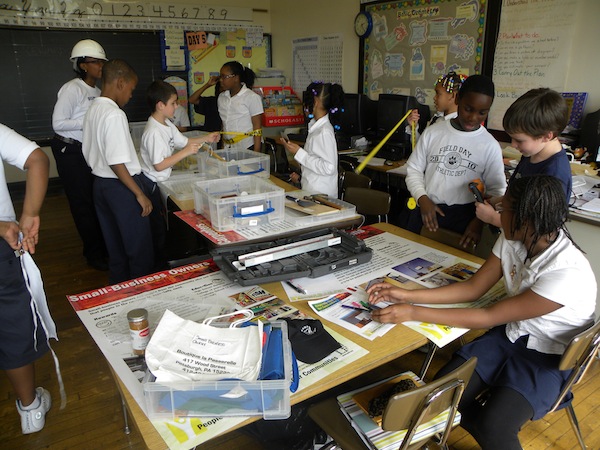 On September 28, Louise Sturgess and Karen Cahall of PHLF will attend the 2012 Pennsylvania Historic Preservations Awards luncheon in Harrisburg to accept an “Initiative Award for Education” for its career awareness program, “People Who Work to Improve Our Communities.” The event is sponsored by Preservation Pennsylvania.
On September 28, Louise Sturgess and Karen Cahall of PHLF will attend the 2012 Pennsylvania Historic Preservations Awards luncheon in Harrisburg to accept an “Initiative Award for Education” for its career awareness program, “People Who Work to Improve Our Communities.” The event is sponsored by Preservation Pennsylvania. Since the program’s inception in 2011, more than 2,050 elementary and middle-school students have learned about 16 professions by reading huge, colorful posters, playing with tools of the trade, touring their school, and discussing their neighborhood. The program was developed at the request of the Pittsburgh Public Schools and was funded through contributions to PHLF from The Fine Foundation, McSwigan Family Foundation, and Alfred M. Oppenheimer Memorial Fund of The Pittsburgh Foundation.
For further information contact Karen Cahall (412-471-5808, ext. 537) or click here.
-
“Climbing to the Heights” and Contributing to PHLF’s HRP Program
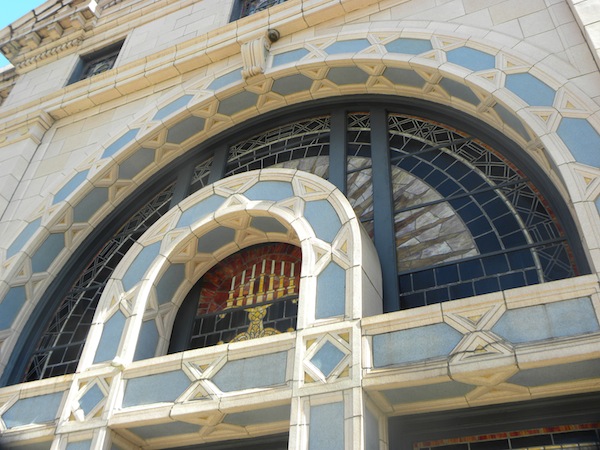 A member of Poale Zedeck’s House Committee recently sent a thank you e-mail to Tom Keffer, PHLF’s property and construction manager, for his “time, expertise, and guidance” in reviewing the results of the masonry repair on the Squirrel Hill landmark. “I especially note the energy and commitment to your work which you demonstrated by braving the treacherous climb to the heights of our multi-level roofs over portable ladders (on a near 100 degree day), a feat which has turned back many a soul not so confident as yourself,” wrote Morris Kornblit.
A member of Poale Zedeck’s House Committee recently sent a thank you e-mail to Tom Keffer, PHLF’s property and construction manager, for his “time, expertise, and guidance” in reviewing the results of the masonry repair on the Squirrel Hill landmark. “I especially note the energy and commitment to your work which you demonstrated by braving the treacherous climb to the heights of our multi-level roofs over portable ladders (on a near 100 degree day), a feat which has turned back many a soul not so confident as yourself,” wrote Morris Kornblit.While most of us are not able to do what Tom does in a day’s work, most of us are able to contribute to PHLF’s Historic Religious Properties program so more architecturally significant places of worship in Allegheny County can undertake critical exterior improvements.
So far this year, 45 people have contributed $21,640 to PHLF’s HRP program. Add your gift today! Our goal is to raise $75,000 by the end of the year so we can offer a new program of financial and technical assistance in 2013. Please help us reach our goal by making a cash contribution or a planned gift.
- For a cash gift, please click here to make a tax-deductible donation. Go to “Contribute” on the home page; select the amount of your gift; and direct it to Historic Religious Properties.
- Planned giving: By making PHLF the owner and beneficiary of an existing whole life insurance policy, you could make an immediate gift that could also play a role in helping us develop a significant endowment that would impact our HRP program for generations. To learn more about ways gifts of life insurance can be mutually beneficial, visit our website at http://plannedgifts.phlf.org/GIFT-Insurance.php or contact our planned giving office at plannedgiving@phlf.org or 412-471-5808, ext. 538. Other giving ideas can also be found at plannedgifts@phlf.org.
However you choose to support the HRP Program, it is important to remember that your gift is leveraged. “Each grant from PHLF is matched by the congregation, making donations from our members and friends even more valuable,” said George Dorman, chair of PHLF’s HRP Committee.
Whether you choose to support the HRP program or another important PHLF project or program, thank you for helping to make possible our many preservation successes.
-
Arthur Ziegler: Historic Preservation in Our Time
Historic preservation. Sounds simple. Save architecturally significant buildings.
But the work is a great deal more complicated than that.
As we approach PHLF’s 50th Anniversary in 2014, I want to begin a conversation with you that in part reflects on where our organization and our movement have been, but also discusses what course we should set for our next half-century.
We have, indeed, come a long way. When we began 48 years ago, we quickly realized that a significant majority of historic buildings in our community were located in troubled neighborhoods, owned by people – many of them minorities – without significant monetary means. Even worse was the realization that a number of historic properties were owned by slumlords.
Compounding the problem was the fact that many of those neighborhoods in Pittsburgh and throughout the nation were scheduled for clearance for ‘urban renewal’, a heartless governmental, top-down series of programs that recognized no value in the existing housing, the main street retail, or the daily rhythms of generations of people in those areas. Worse, ‘urban renewal’ was absolutely soul-less and cracked the emotional bonds among the people within the community, and their ties with the buildings, the streets, shops, and the schools and churches located there.
Without much knowledge or forethought, a few of us set out to stop the disruption. Not surprisingly, we found that residents and community members who were in these areas had the best ideas for their improvement; we therefore became a grassroots-oriented organization, and the few became many.
From that early work, PHLF developed a series of principles that we have followed for nearly half a century: buildings worth saving are those of architectural significance, valued by the community/neighborhood, with feasible reuse plans.
With our work came losses and victories.
All of the North Side from the Heinz Plant to the Ohio River edge in Manchester was scheduled for demolition before PHLF became active with the residents in the 1960s. Beaver Avenue Clearance and Allegheny Center were foisted upon the North Side, but PHLF and neighborhood residents were able to save the Old Post Office, the Buhl Planetarium, and Carnegie Library. South Side was scheduled for demolition and we worked with residents and Carson Street merchants and defeated that plan, but the list of proposed demolitions went forward. Unfortunately, massive demolition occurred in the Lower Hill, in much of East Liberty, and in the Point area at the confluence of the three rivers before PHLF was formed in 1964.
Nearly 50 years later, PHLF and our allies are still working to undo the “renewal “ that destroyed the life and buildings of East Liberty, Allegheny Center, and the Lower Hill. We can see the benefits of our efforts all around our city, and can take pleasure in knowing that the areas that people love today are the historic areas: South Side, North Side, Lawrenceville, the Strip District, and the Cultural and Market Square Districts in our downtown.
I believe we have built the strongest preservation organization in the United States in terms of programs, results, and reputation. But clearly, we cannot rest on our laurels, but rather must work to evaluate and strengthen our organization so we are connected to the future. As I have learned over my years, the best use of the experience of age is to make it available to younger people who don’t then have to learn a-new, but can start at a higher level and build on that experience in innovative ways that can influence the world as they shape it.
As I, along with PHLF staff and members of our Boards, gather our thoughts on where we have been and where we will go, we invite each of you to send your thoughts to us by way of e-mail or letter with the subject line: “PHLF Thoughts.”
Let us know what PHLF means to you. Tell us which of our programs has made a difference to you, and most importantly, please share with us your hopes and dreams of what our community could be, and how PHLF can act to achieve that vision.
Thank you for your continuing support of PHLF; and thank you in advance for your innovative ideas and future participation.
For ongoing updates on our work, tours, and other projects, I invite you to continue following us at www.phlf.org or on Twitter, Facebook or YouTube.
Arthur Ziegler, President
Pittsburgh History & Landmarks Foundation
-
Help Restore Architectural Landmarks through HRP Program
“Annual donations from PHLF members and friends in support of our Historic Religious Properties (HRP) Program make it possible for us to continue our program of financial and technical assistance,” said Carole Malakoff, program coordinator.
Since the July E-news, thirty-four more people have contributed, bringing the total amount of funds raised in 2012 to $18,805. Our goal is to raise $75,000 to enable us to offer another round of grants in 2013. We are also working to identify $2.5 million in bequests and other planned gifts to endow this important program.
“Each grant from PHLF is matched by the congregation, making donations from our members and friends even more valuable,” said George Dorman, chair of PHLF’s HRP Committee. Please make a tax-deductible contribution today by clicking here. Go to “Contribute” on the home page; select the amount of your gift; and direct it to Historic Religious Properties. We thank you.
PHLF is the only organization that most historic religious properties can turn to for help in making critical exterior repairs. By encouraging careful, informed, and economical stewardship, PHLF helps ensure that these architecturally significant places of worship will be taken care of for future generations. Click here to read our annual appeal letter.
-
CampDEC (Design Explore Create) Finale on August 16
Middle school campers have been exploring Pittsburgh with PHLF and designing and creating poetry, artwork, and 3-D models, thanks to the Pittsburgh Public School’s Summer Dreamers Academy. CampDEC (Design Explore Create) is based at Pittsburgh King on the North Side and continues every weekday afternoon through August 17.
During a grand finale on August 16, campers will present a book they will have published and describe two models to a jury of architects: the models will show their visions for improving a vacant lot on W. North Avenue and the Federal Street highway underpass.
On August 17, the last day of camp, campers will visit SLB Radio to share their thoughts about Pittsburgh and describe their CampDEC experiences. “This is a terrific opportunity for these young people,” said Louise Sturgess, executive director of PHLF, “and for us. Together we explore Pittsburgh and create some amazing projects and friendships.”
CampDEC is supported by contributions from the Pittsburgh Public Schools, the McSwigan Family Foundation, and Alfred M. Oppenheimer Memorial Fund of The Pittsburgh Foundation. For more information, please contact Louise.

